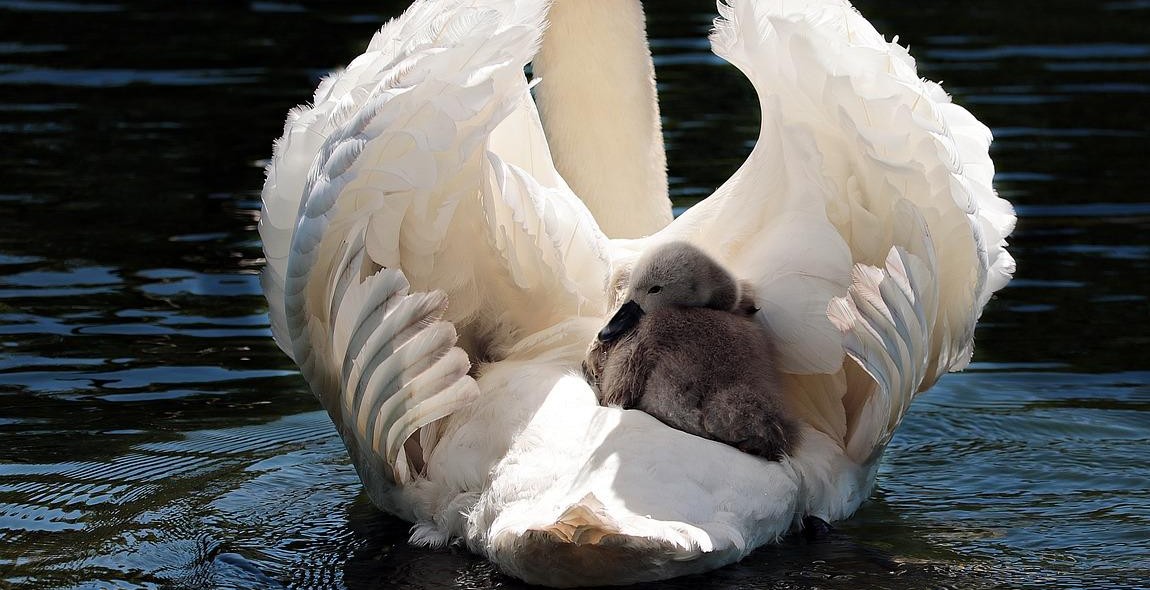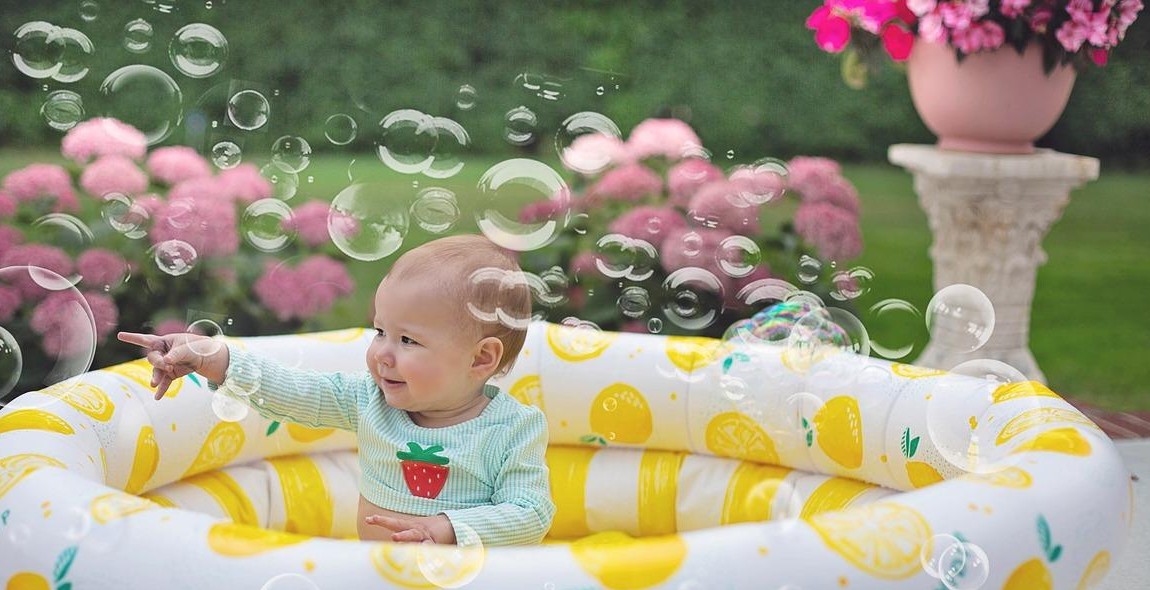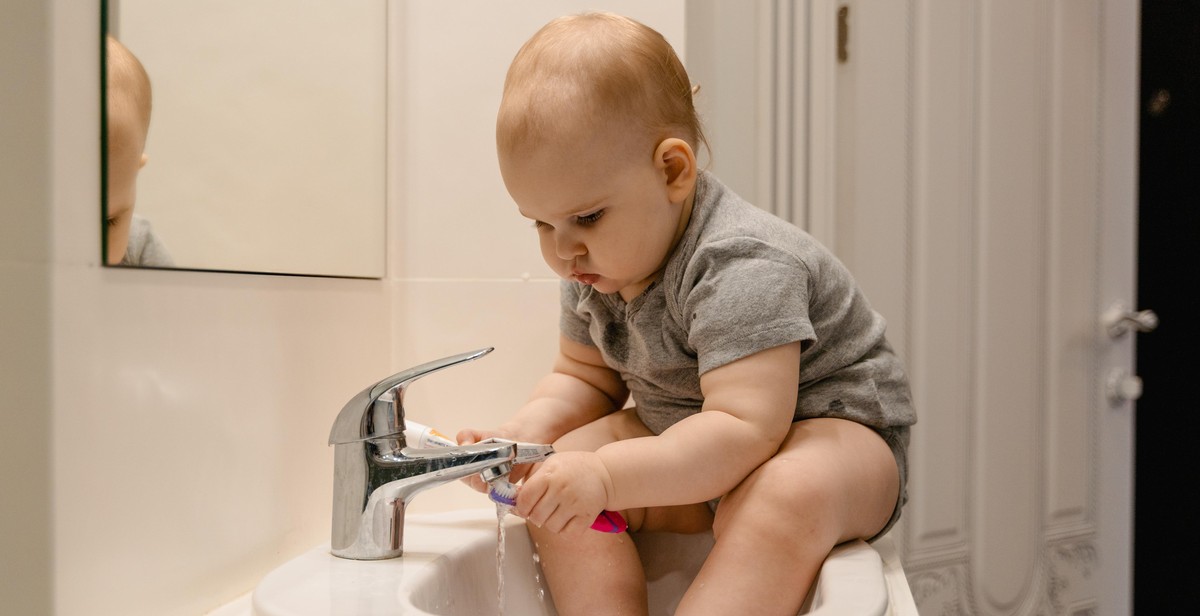How to Introduce Your Baby to Water: Gentle Steps for Early Water Familiarization
Introducing your baby to water can be a fun and rewarding experience for both you and your little one. However, it’s important to take things slow and ensure that your baby feels comfortable and safe at all times. In this article, we’ll explore some gentle steps for early water familiarization that you can take to help your baby become comfortable and confident in the water.
Why Introduce Your Baby to Water?
There are many benefits to introducing your baby to water at an early age. For one, it can help your baby develop a love for swimming and water activities that can last a lifetime. Additionally, early water familiarization can help your baby develop important motor skills, improve coordination and balance, and even boost their cognitive development.
When to Start Introducing Your Baby to Water
Experts recommend waiting until your baby is at least six months old before introducing them to water. At this age, your baby’s immune system is stronger, and they are better able to regulate their body temperature. However, it’s important to always consult with your pediatrician before starting any new activities with your baby.
Gentle Steps for Early Water Familiarization
- Start with a shallow and warm kiddie pool or bathtub
- Hold your baby securely while they explore the water
- Gradually introduce new water experiences, such as splashing or blowing bubbles
- Use flotation devices, such as a swim ring or baby float, to help your baby feel more secure in the water
By following these gentle steps, you can help your baby become comfortable and confident in the water, setting the stage for a lifetime of water activities and fun.

Why Introduce Your Baby to Water?
Introducing your baby to water at an early age can have both physical and mental benefits. Here are some reasons why you should consider doing so:
Physical Benefits
- Improves Muscle Development: Water helps to strengthen your baby’s muscles and improve their overall physical development. It provides a low-impact environment for your baby to exercise their limbs without putting too much pressure on their joints.
- Boosts Immune System: Exposing your baby to water can help to boost their immune system. When babies are in water, their body produces more white blood cells which help to fight off infections and diseases.
- Enhances Coordination and Balance: Water helps to enhance your baby’s coordination and balance. The buoyancy of water provides a unique environment that challenges your baby’s ability to maintain balance and coordination.
- Improves Respiratory System: When babies are introduced to water, they learn how to control their breathing. This helps to improve their respiratory system and can be beneficial for babies with asthma or other respiratory conditions.
Mental Benefits
- Reduces Anxiety and Stress: Being in water can help to reduce anxiety and stress in babies. The sensation of weightlessness and the sound of water can have a calming effect on your baby’s nervous system.
- Promotes Relaxation and Sleep: Water can help to promote relaxation and better sleep for your baby. The warm temperature and gentle movements of the water can have a soothing effect that can help your baby fall asleep faster and sleep better.
- Enhances Cognitive Development: Water provides a stimulating environment that can enhance your baby’s cognitive development. The different textures, sounds, and movements in water can help to improve their sensory perception and overall cognitive abilities.
| Note: | It is important to note that introducing your baby to water should be done gradually and with caution. Always supervise your baby when they are in water and never leave them unattended. |

When Can You Start Introducing Your Baby to Water?
Introducing your baby to water can be a fun and exciting experience for both you and your little one. However, it is important to remember that babies have delicate skin and immune systems, which means that introducing them to water too early or in the wrong way can be harmful.
The American Academy of Pediatrics Recommendations
The American Academy of Pediatrics (AAP) recommends that parents wait until their baby is at least 6 months old before introducing them to water. This is because babies younger than 6 months old should only consume breast milk or formula. Giving them water can interfere with their body’s ability to absorb the necessary nutrients from breast milk or formula, which can lead to malnutrition.
Factors to Consider When Introducing Your Baby to Water
While the AAP recommends waiting until your baby is 6 months old before introducing them to water, there are other factors to consider as well. These include:
- Your baby’s overall health and development
- The quality and temperature of the water
- The safety of the water source
- Your baby’s reaction to being in water
It is important to consult with your pediatrician before introducing your baby to water. They can give you specific recommendations based on your baby’s individual needs and circumstances.
How to Introduce Your Baby to Water
When you do decide to introduce your baby to water, it is important to do so gradually and gently. Start by introducing them to small amounts of water in a safe and controlled environment. This can be done through activities such as bathing with your baby or using a baby pool.
Always supervise your baby when they are in or around water, and never leave them unattended. It is also important to make sure that the water is clean and at an appropriate temperature for your baby’s delicate skin.
By following these gentle steps and taking the necessary precautions, you can safely introduce your baby to water and help them develop a love for swimming and water activities.
How to Introduce Your Baby to Water: Gentle Steps for Early Water Familiarization
Introducing your baby to water can be a fun and exciting experience for both you and your little one. However, it is important to take gentle steps to ensure that your baby is comfortable and safe in the water. Here are some tips on how to introduce your baby to water:
Start with Bath Time
One of the easiest ways to introduce your baby to water is by starting with bath time. It is a familiar and comfortable environment for your baby, and you can gradually introduce them to the sensation of water on their face and body. You can use bath toys to make it a fun and enjoyable experience for your baby.
Use a Baby Pool
Once your baby is comfortable with bath time, you can move on to using a baby pool. Make sure the pool is shallow and the water is warm. You can use toys to encourage your baby to splash and play in the water.
Get in the Water with Your Baby
It is important to be with your baby in the water at all times. This will help them feel safe and secure, and it will also allow you to monitor their comfort level and adjust accordingly. You can hold your baby close to you or use a floatation device.
Use Swim Diapers and a Rash Guard
When introducing your baby to water, it is important to use swim diapers and a rash guard to prevent any accidents or discomfort. Swim diapers are designed to contain any accidents, while a rash guard will protect your baby’s skin from the sun and irritants in the water.
Gradually Introduce Your Baby to Submersion
Once your baby is comfortable with being in the water, you can gradually introduce them to submersion. Start by pouring water over their head or having them blow bubbles in the water. You can then progress to slowly lowering them into the water and eventually letting them float on their own.
- Start with bath time
- Use a baby pool
- Get in the water with your baby
- Use swim diapers and a rash guard
- Gradually introduce your baby to submersion
By following these gentle steps, you can help your baby become familiar and comfortable with water at an early age. Just remember to always prioritize your baby’s safety and comfort in the water.

Tips for a Positive Water Experience
Introducing your baby to water can be a fun and exciting experience for both you and your little one. Here are some tips to make the experience positive and enjoyable:
Choose a Warm Pool
Babies can get easily cold in water, so it’s important to choose a warm pool with a temperature of around 32°C. A warm pool will help your baby feel more comfortable and relaxed, making the experience more enjoyable for them.
Keep the Water Clean
Make sure the pool you choose is clean and well-maintained. A dirty pool can be harmful to your baby’s health. Additionally, if your baby is not feeling well, it’s best to wait until they are feeling better before introducing them to water.
Use Toys and Games
Using toys and games can make the water experience more fun and engaging for your baby. Choose toys that are specifically designed for use in water, such as floating toys or water-friendly books. Remember to supervise your baby at all times while they play in the water.
Be Patient and Encouraging
It’s important to be patient and encouraging when introducing your baby to water. Some babies may take longer to feel comfortable in the water than others. Remember to stay positive and offer plenty of encouragement and praise to your baby throughout the experience.
- Choose a warm pool with a temperature of around 32°C
- Keep the water clean and well-maintained
- Use toys and games to make the experience more fun and engaging
- Be patient and encouraging with your baby
By following these tips, you can help ensure that your baby has a positive and enjoyable water experience.

Conclusion
Introducing your baby to water can be a fun and exciting experience for both you and your little one. However, it is important to take gentle steps and follow safety precautions to ensure a positive and safe water familiarization process.
Start by introducing your baby to water in a bathtub or baby pool, and gradually progress to larger bodies of water. Always supervise your baby when they are around water and never leave them unattended.
Remember to use appropriate swimwear and flotation devices for your baby, and avoid forcing them to do anything they are not comfortable with. Encourage them with positive reinforcement and praise for their efforts.
Early water familiarization can have numerous benefits for your baby, including improved coordination, muscle strength, and confidence in the water. By taking it slow and following these gentle steps, you can help your little one develop a lifelong love and respect for the water.
So go ahead, take the plunge and enjoy this special bonding time with your baby in the water!
| Previous Article | Next Article |
|---|---|
| How to Choose the Right Swimwear for Your Baby: Tips and Tricks | The Benefits of Swimming for Babies: Why it’s Never Too Early to Start |
